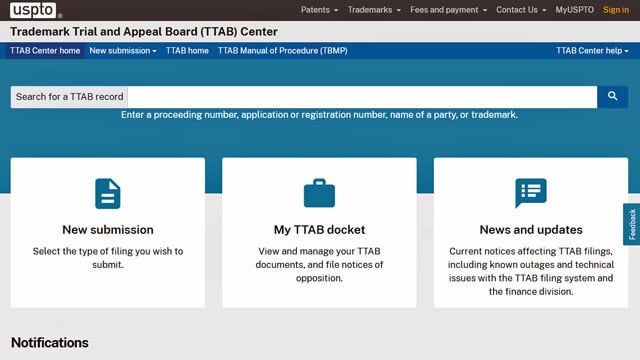TTAB added a new filing option for cancellation
USPTO has announced an added option for Trademark Trial and Appeal Board (TTAB) customers to file a petition for cancellation in our new system, TTAB Center. The new filing functionality will be available on May 12, 2025. Currently, petitioners can file using either TTAB Center or the existing filing platform, the Electronic System for Trademark Trials and Appeals (ESTTA). Starting on July 12, 2025, users will no longer be able to file petitions for cancellation through ESTTA. A cancellation proceeding is a TTAB proceeding in which a party may seek to cancel an active trademark registration.
情報源: USPTO announces new filing option available online for Trademark Trial and Appeal Board customers




